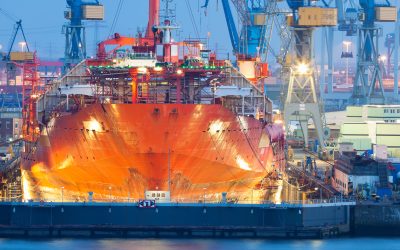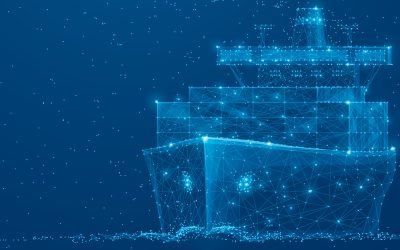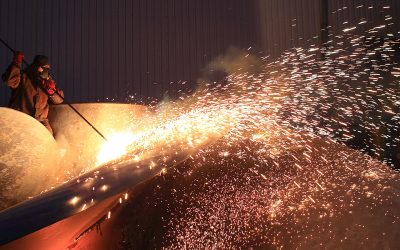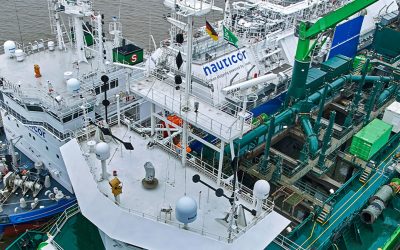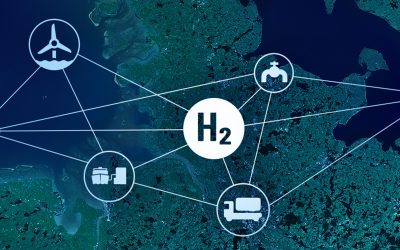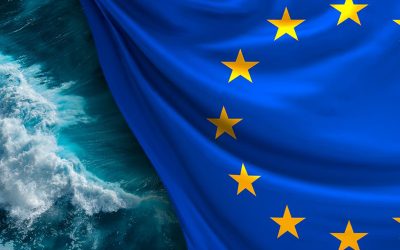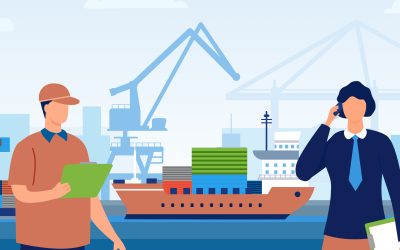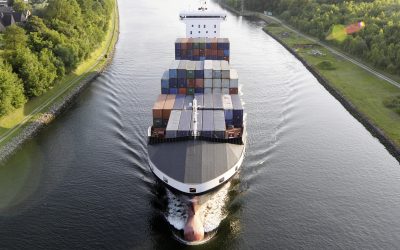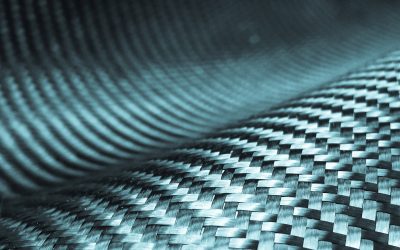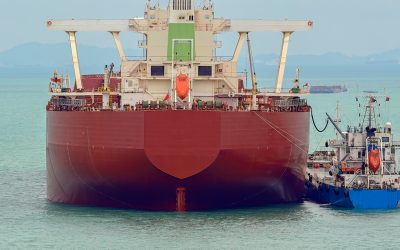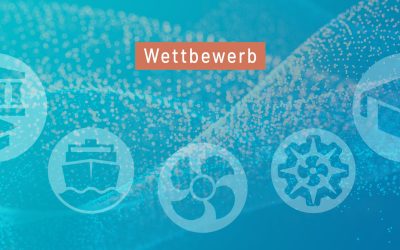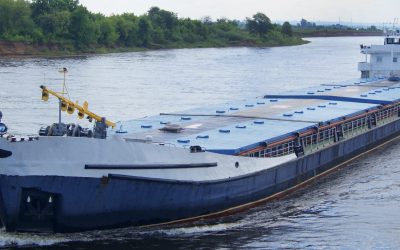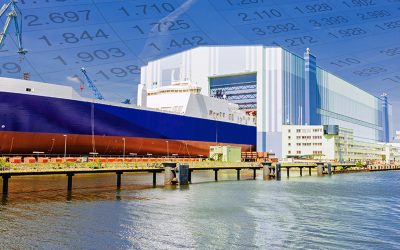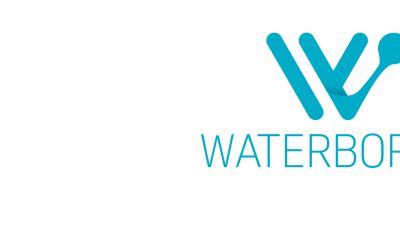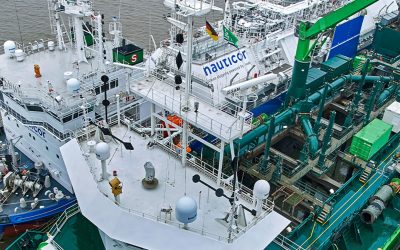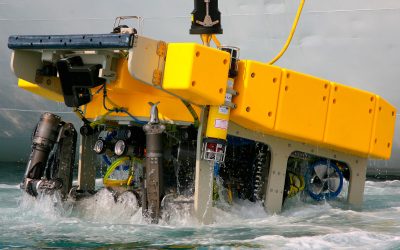

Background
Once built, a merchant ship will typically sail the world’s oceans for -up to 20 – 30 years before being scrapped. From shipbuilding (construction) to scrapping or recycling of a ship (ship life cycle), a variety of emissions and wastes are generated. Approximately 90%[1] of a ship’s total emissions are generated during its operating life. This is due the exhaust gases from the ship’s main engine and generators. In the future, switching to renewable energy sources could make ship operation almost emission-neutral, taking into account the life cycle of the fuels. The share of total emissions caused by ship construction and scrapping of ships will therefore increase significantly.
The Report
For these reasons , the German Maritime Centre has commissioned the law firm Lebuhn & Puchta Partnerschaft von Rechtsanwälten und Solicitor mbB to prepare a legal report. The intention is to collect and document all legal regulations on substance emissions, noise emissions and waste disposal as well as other regulatory framework conditions for shipbuilding companies at international, European, and national level. The collection and documentation of legal requirements and regulatory frameworks should enable an overall assessment of the environmental impact of a ship, from production to scrapping (life cycle approach) in future.
The following transfer questions, among others, were answered within the legal expertise:
- What are the different legal requirements for substance emissions, noise emissions and waste disposal for an existing shipyard and for an newly established shipyard? Is grandfathering applicable to existing shipyards, similar to building law?
- What are (additional) emission requirements if a new building and repair yard also wants to carry out ship recycling?
- Are there any additional emission requirements for shipbuilders in Germany compared to the European requirements?
- Are there differences emission and waste legislation between the German federal states?
- What legislative changes are planned at European and national level that could further tighten emissions regulations for shipbuilders in the future?
The results
The legal expertise identified all applicable laws and regulations relating to substance emissions, noise emissions and waste disposal in accordance with the hierarchy of standards.
In Germany, shipyards that can build ships of more than 100 metres in length are required to report certain pollutants and shipments of waste and wastewater to the European Pollutant Release and Transfer Register. The reporting obligation applies if the respective company exceeds the specified threshold values for pollutants and waste. For example, the threshold for CO2 emissions into the air is 500 tonnes per year[2].
In the reporting year 2022, all 23 registered shipyards provided information on their waste volumes. However, only one shipyard exceeded the thresholds and therefore published information on air pollutants (in this case nitrogen oxides and NMVOC [3].
For this reason, the legal expert opinion focused on VOCs (volatile organic compounds), excluding methane and nitrous oxide emissions from shipbuilding facilities subject to permitting. Where there were no specific requirements for shipbuilding facilities, the current regulations for the metal and plastics processing industries and the general requirements for emissions of air pollutants were considered.
Shipyards in Germany that want to carry out ship recycling as well as the new ship construction must comply with the following regulations and laws:

Shipbuilders wishing to recycle ships are also subject to European regulations:
Licensing requirements under Art. 13, 14 of Regulation (EU) No. 1257/2013 of the European Parliament and of the Council of 20 November 2013 on the recycling of ships (from “EU-SRR”: EU Ship Recycling Regulation).
The permit requirements of Articles 13 and 14 of the Regulation apply if the ship recycling facility is intended to recycle ships falling within the scope of Regulation (EC) No 1257/2013. All ship recycling facilities in Germany that do not fall within the scope of the Regulation must be operated in accordance with §§ 6 et seq. of the Federal Immission Control Act (Bundes-Immissionsschutzgesetz, BImSchG). In both cases, the construction and operation of the recycling facility must be based on the best available techniques for waste treatment facilities.
The legal opinion clarifies that the European Directives on process-related emissions and waste have been transposed into national law and apply to all federal states. Since a European Directive only defines the objective of a measure (e.g. emission reduction), it is not legally binding in the European Member States, but must be transposed into national law. A directive lays down minimum requirements. The Member states reserve the right to define additional protective measures that go beyond the targets set by the directive itself. Germany, for example, has issued the Technical Instructions on Air Quality Control (TA-Luft), which are applied when the Federal Immission Control Act contains regulatory gaps for certain pollutant emissions.
In response to the question of whether there is any grandfathering protection for existing shipyards, the report gives a clear answer: all the regulations on process-related emissions and waste described in the legal opinion apply to existing shipyards as well as to newly established shipyards. There is no grandfathering for permits under the Immission Control Act, as is the case for example in building specifications .
There are isolated exceptions for shipbuilding companies, e.g. in the 31st Ordinance on the Implementation of the Federal Immission Control Act[4].The Ordinance regulates the limitation of emissions of volatile organic compounds when organic solvents are used. The specified emission limit values specified in the Ordinance do not apply to shipbuilding companies if they cannot be complied with under certain circumstances. This is based on the general requirement for companies to avoid harmful environmental impacts and, as far as possible, emissions by using the “best available techniques”. The exemption continues to be in line with the requirements of the European Industrial Emissions Directive.
Although environmental legislation is constantly being adapted and amended to take into account of new and improved technologies, there are no specific legislative proposals at either European or national level that could affect and tighten the emissions regulations for shipbuilding companies.
Summary and outlook
Accounting for all emissions “in the life of a ship” will become a key issue in the coming years. With the introduction of renewable alternative fuels and the goal of near-zero emissions, the importance of emissions caused from the construction, scrapping and repair of ships will increase. The legal opinion shows that a large proportion of the emissions from the construction of a ship are not generated in the shipyard itself.
Today, ship components are not manufactured in a shipyard; but are delivered to the shipyard by various suppliers and assembled into a ship. In order to be able to better assess the emissions during the construction phase of a ship, it is necessary to take an overall view, including the emissions outside the shipyard.
None of the shipbuilders registered in the European Pollutant Release and Transfer Register exceeded the threshold of 500 tonnes of carbon dioxide emissions per year in 2022. By comparison, registered car manufacturers had an average CO2 emission of around 162,000 tonnes in 2022[5].
In the future, the German Maritime Centre would like to contribute to the analysis of cross-border emissions in shipbuilding.
[1] https://stirlingdesign.fr/presses/conferences/stirling_design_paper_ssd.pdf
[2] https://eur-lex.europa.eu/LexUriServ/LexUriServ.do?uri=OJ:L:2006:033:0001:0017:DE:PDF
[3] Non-methane volatile organic compounds (NMVOCs) are substances that are emitted, for example, when cleaning agents with a high solvent content are used.
[4] https://www.gesetze-im-internet.de/bimschv_31/BJNR218100001.html
[5] https://thru.de/thrude/downloads/

